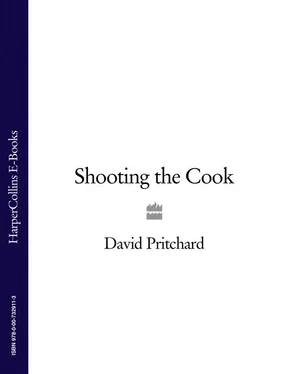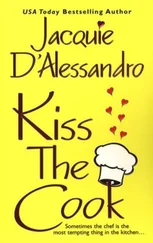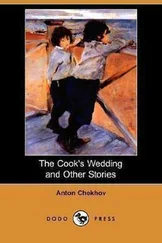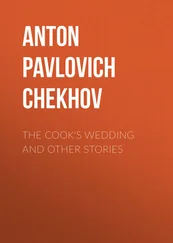What an interesting subject, I thought. Here we had all these lovely fish arriving as fresh as daisies and we were selling them to the Spanish and also the French because we didn’t fancy eating them ourselves. Could it be that as an island we were a bunch of fish haters because in days past fish was just too plentiful? I could remember when I came home from school and the house used to stink of fish because my mother boiled cod shoulders for the cat’s tea. It put me off fish for years.
But thanks to Fred Brimmacombe, I knew what my new programme was going to be about. It was going to be an evangelical food programme led by my very own Billy Graham, the man I’d met many months earlier in a Bristol restaurant. I could see Keith Floyd as the fishermen’s champion, showing the people at home how silly it was to export all this fresh, cheap fish to the Continent when we should be eating it ourselves. And this wouldn’t be a five-minute flash in the pan wedged between a rock band and a film on the architecture of Swindon. This would be a whole programme devoted to this dreadful waste of a precious resource. It might even be a series.
Maybe I should nip up to Bristol now to see Keith for a drink and start making plans, I thought. But the turbot looked far too good. I imagined it gently poached in a court bouillon for fifteen minutes or so and then served with hollandaise, new potatoes, and watercress. Maybe I’d see him tomorrow.
When we met again Floyd had lost a bit of his sparkle. He was in the kitchen of his bistro on the phone and having a difficult time judging by the way he was dragging on his cigarette. I gathered from the bits of conversation I was trying not to hear that he was immersed in financial difficulties, and from what I could glean, the person on the other end of the phone was refusing to deliver any more produce until the bill was settled. It was a painful telephone call which had gone well beyond that old familiar stopgap of ‘a cheque is in the post’. I wished I had arrived a bit later because he looked completely dejected as he put the receiver down, and not at all like the swaggering adjutant I’d seen all those months before.
He was in the middle of cooking freshwater crayfish and I’d never set eyes on one before. What beautifully designed things they were, rather like cherry-red Matchbox edition toy lobsters crossed with JCBs. They were being extremely aggressive to each other and I could imagine that if they were the size of dachshunds they’d take over the world. I discovered over lunch they also tasted wonderful, like sweet nutty shrimps. Floyd didn’t eat very much. He was drinking large Scotches with lots of ice and puffing away on endless cigarettes, detailing his thoughts on why the British people have no respect for good food, while the French revere it.
I toyed with the idea of contradicting him by pointing to the hillock of discarded crayfish shells on my plate, compared to his rather full ashtray, but thought it best not to. It dawned on me at the time that one of the differences between a gourmand and a gourmet might well be this: a gourmet is someone with a relatively small appetite and an academic interest in food, who’d rather talk about it than eat it; a gourmand relishes the infinite joys and pleasures of eating.
During lunch we discussed filming, money, locations, dishes. In fact, the money was a bit of a sticking point because everyone at that time assumed television had money to burn, after all it was seen as a glamorous industry. But regional television, along with local radio, was the church mouse of the BBC and the budgets reflected that. Two thousand pounds was all I had to make each half-hour programme of Floyd on Fish , a programme destined to be shown in the south-west only. This meagre budget had to pay for Keith, the film crew, travel and accommodation, film stock and hospitality, which inevitably included many bottles of wine. My salary and the post production costs like editing and dubbing were excluded from that sum. This was 1984. To make a similar programme today you’d have to multiply that figure by twenty-five at least.
Am I supposed to rehearse this? And do I need more than one fish?
I used to have a recurring nightmare while learning the rudiments of rugby at school. I found the rules of rugby union extremely complicated, especially things like the offside regulation, and the fact that you had to pass the ball backwards to your teammates seemed totally unnatural. It seemed to me the game would be so much more interesting if you were allowed to throw the ball forwards. And as for scrums; what on earth was that all about? In my nightmare I would find myself playing for the England Colts at Twickenham, with the stands packed with young enthusiasts. I’d be fortunate enough to catch a high pass but would find myself stopping for a few moments to decide what to do. Should I run with the ball? Should I pass it back or kick it forward? In the meantime a whole mountain of flesh from the opposing side would fall on me and afterwards the scorn of the crowd and fellow members of my team would sound like 10,000 baying wolves. ‘Look,’ I would say, standing alone on the pitch, ‘this is very complicated. I was just trying to decide what was the best thing to do.’ Such was my quandary now.
Our very first location was at a fine restaurant in Devon called the Horn of Plenty and it was run by Sonia Stevenson, a lively woman with a cut-glass accent and a deep passion for food. She said she first wanted to be a cook when she started to make mud pies with her friends as a child. An assistant producer at Plymouth, Jeremy Mills, suggested we shoot there because of her formidable reputation as a cook.
Floyd and I drove through the high hedgerows of Devon to the restaurant. Bluebells, red campions and primroses lined the way as we crunched over the gravel that led to the entrance of this imposing Victorian house. Sonia was waiting on the front steps dressed in her chef ’s whites and looking very professional. Warming to the theme of our programme, she said she had chosen to cook hake in a lemon and butter sauce because the Spanish were nicking all these lovely fish from around our coasts and she wanted to show people how good they were. Splendid, said Floyd, rubbing his hands together.
We started to film and suddenly I realized why, until now, all those cookery shows had been recorded in a studio. With four cameras or so you can have a whole assortment of shots, from close-ups of the ingredients to a wide angle of the kitchen, as well as mid-shots of the cook and guest. But where was my one camera supposed to be looking? At Floyd’s face? At his hands? In the cooking pot? Where? The film was rolling through and I kept it on a shot wide enough to see Keith and Sonia plus the fish and the other ingredients. I think I had a touch of ‘rabbit in the headlights’ syndrome.
Apart from making a very short item with Floyd cooking his rabbit dish, I’d never done anything like this before. Fortunately I was saved by the cameraman, Malcolm Baldwin, suggesting that it would be quite a good idea to cut at this point and set up a closer shot of the subject, which was the fish. ‘Ah! I get it,’ I thought, as Sonia started to cut the hake into cutlets—but what happens next? It was a bit like a jigsaw puzzle, except you had to saw out the pieces personally before you began.
Day one of a new series, and technically I wasn’t up to it: it was a pretty cathartic moment for me. I could tell by the way Floyd was looking at me that he knew I’d lost the plot. I could feel the respect levels plummeting and I thought to myself, ‘I wish I hadn’t done this. I wish I hadn’t done this .’ A director has to be in charge, or everything spirals out of control.
I learnt a set of valuable lessons that day and they are: do a thorough ‘recce’ of the location; discuss in detail the actual cooking process, something you should be able to commit to memory; and make sure there’s another stand-in fish and duplicate ingredients so that you can film all the close-ups of the cooking process in beautiful back-lit photography later on. Also, if the camera is stuck on a tripod, there is very little it can do, whereas if it is handheld it becomes the viewer’s eager eye. I just wish someone had told me before. It would have saved so much pain and angst.
Читать дальше












